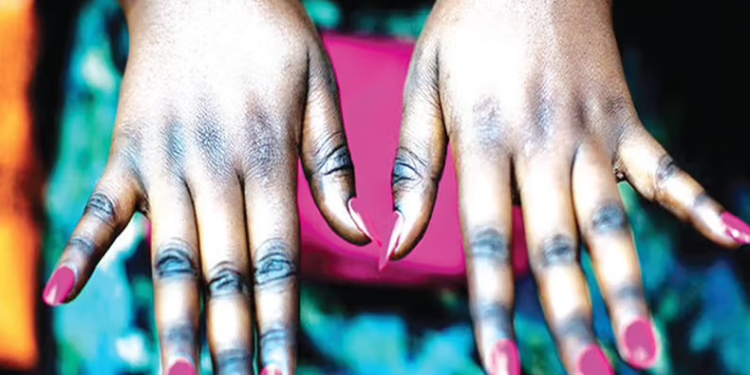Ghana Ranked Among Top 7 African Countries With The Most Skin Bleaching Population
Skin bleaching has a long history in Africa, dating back to the transatlantic slave trade and European colonization.
The practice of skin bleaching has been tied to various health issues, ranging from skin conditions to life-threatening diseases like diabetes, hypertension, and kidney disease.
The chemicals used in skin lighteners, particularly mercury, pose significant health risks. Mercury works by blocking melanin production and removing the top layers of skin through acid production.
Despite being banned or heavily restricted in many countries, skin bleaching remains a public health issue in Africa. Many Africans, especially women, continue to use these products despite knowing the risks.
The proliferation of skin-lightening products has sparked widespread condemnation across Africa.
Nigeria’s Minister of State for Health and Social Welfare, Iziaq Salako, recently expressed concerns about the growing use of these products in Nigeria and Africa, despite their well-documented harmful effects.
At a regional workshop in Gabon, Mr. Salako noted that Nigeria has one of the highest rates of bleaching product usage globally.
He emphasized that many of these products contain toxic substances, including mercury, hydroquinone, steroids, and heavy metals like arsenic, lead, and cadmium, which can cause skin damage, organ toxicity, and even cancer.
The Ministry of Health’s Cosmetics Safety Management Programme (CSMP) conducted a survey on skin-lightening agent usage, revealing that 52% of manufacturers use these agents in their products.
According to a World Bank document, a recent meta-analysis found that 27.1% of Africans practice skin bleaching.
An analysis of 68 studies revealed that individuals aged 30 and under, had the highest skin bleaching prevalence at 55.9%, followed by those aged 31-49 at 25.9%.
Surveyed users cited the following reasons for using bleaching cream: 49.38% of women desired smooth and healthy skin, 30.86% sought to enhance their beauty, and approximately 20% aimed to gain social benefits, such as improved marriage prospects and better job opportunities.
The table below highlights African countries with the highest prevalence of skin bleaching;
| Rank | Country | Bleaching Prevalence (%) |
|---|---|---|
| 1 | Nigeria | 77% |
| 2 | Congo-Brazzaville | 66% |
| 3 | Senegal | 50% |
| 4 | Ghana | 39% |
| 5 | South Africa | 32% |
| 6 | Zimbabwe | 31.15% |
| 7 | Mali | 25% |
Skin bleaching prevalence varies widely across Africa, with rates ranging from 25% in Mali to a staggering 77% in Nigeria.
Other countries report intermediate rates: 32% in South Africa, 39% in Ghana, 50% in Senegal, and 66% in Congo-Brazzaville.
Additionally, in Zimbabwe, 31.15% of women engage in skin bleaching.
These statistics highlight the pervasive use of skin-lightening products across the continent, indicating significant regional variations in skin-bleaching practices.
To address the growing issue of skin bleaching, WHO has partnered with countries to implement and enforce bans on harmful skin-lightening products, particularly those containing mercury and hydroquinone.
These collaborations aim to protect public health by phasing out toxic ingredients linked to severe health risks while promoting safer alternatives.








